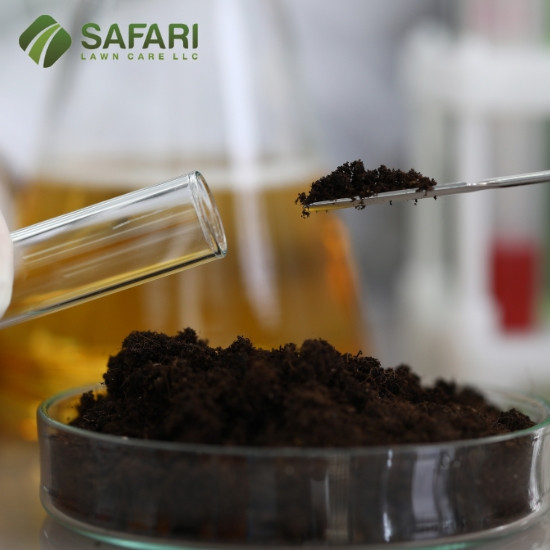The Role of Soil Testing in Cultivating a Thriving Lawn
A beautiful, healthy lawn is no coincidence. It takes diligent care, consistent upkeep, and a clear understanding of your soil's condition. Soil testing, an often underestimated yet crucial practice, reveals vital details about your soil's nutrient levels and composition, ensuring you provide the perfect lawn care for lush grass growth.
The Importance of Soil Testing
The quality of your soil is a critical factor in maintaining a healthy lawn. Without the right balance of nutrients, even the toughest grass varieties can struggle to thrive. Soil testing provides a comprehensive analysis of your soil's pH level, nutrient makeup, and other vital factors influencing plant health. This knowledge enables you to customize your lawn care approach, addressing specific deficiencies while avoiding issues like over-fertilizing or using unsuitable products.
Advantages of Soil Testing
Assessing your soil’s condition is an essential step toward cultivating a lush, vibrant lawn. Soil testing delivers detailed insights into nutrient levels, pH balance, and overall health, empowering you to make strategic decisions for effective lawn care. Below, we outline the key benefits of soil testing and how it can elevate your lawn’s growth and resilience.
Precise Nutrient Analysis
Soil testing identifies essential nutrients such as nitrogen, phosphorus, and potassium (NPK), each critical to your lawn's health. Nitrogen promotes vibrant, green growth, phosphorus aids in root development, and potassium strengthens grass against environmental stressors.
Optimized pH Levels
The soil's pH directly affects nutrient absorption. Lawns typically thrive in slightly acidic to neutral soil, with a pH range of 6.0 to 7.0. Soil testing pinpoints whether your soil is too acidic or alkaline and offers solutions like lime to raise the pH or sulfur to lower it.
Cost-Effective Lawn Maintenance
By understanding your soil's specific needs, you can eliminate unnecessary expenses on fertilizers or amendments. Targeted treatments maximize your investment, delivering superior results with minimal waste.
Enhanced Grass Resilience
Properly nourished grass is better equipped to resist pests, diseases, and environmental challenges like drought or extreme temperatures. Soil testing lays the groundwork for a robust and thriving lawn.
Environmental Responsibility
Excessive fertilization can result in runoff, which harms nearby water sources. Soil testing ensures precise nutrient application, minimizing the environmental impact and promoting sustainable lawn care practices.
How to Conduct a Soil Test
Performing a soil test is simple and can be done using a DIY kit or by sending a sample to a professional lab. Follow these steps for accurate and reliable results:
-
Gather Soil Samples
Using a clean trowel, collect soil from multiple areas of your lawn to ensure a representative sample. Dig to a depth of 4-6 inches to reach the root zone, where nutrient levels are most relevant. -
Mix and Prepare
Combine the collected samples in a clean bucket, removing debris like rocks, roots, or grass. Allow the soil to air-dry completely before packaging it for testing. -
Follow Testing Instructions
For home test kits, follow the manufacturer’s instructions to mix the soil with testing solutions and interpret the results, often indicated by color codes. If opting for lab testing, send the prepared sample to a trusted facility for a detailed analysis. -
Analyze and Take Action
Review the results to understand your soil’s nutrient composition and pH balance. Use this information to select fertilizers, soil amendments, or treatments that meet your lawn's specific needs.
When to Test Your Soil
Timing is key for effective soil testing. Ideally, test your soil every 2-3 years, or more frequently if you’re establishing a new lawn or dealing with persistent issues like thinning grass or excessive weeds. Early spring or fall is the optimal time to test, as these seasons align with essential lawn care tasks such as fertilizing and seeding.
Why Soil Testing Is Essential
Soil testing is a critical step in maintaining a healthy, thriving lawn. It identifies nutrient deficiencies and pH imbalances, enabling you to create a targeted lawn care plan. A well-nourished lawn not only boosts curb appeal but also supports environmental sustainability by reducing the need for excessive fertilizers and water.
For expert assistance, Safari Lawn Care offers professional and tailored lawn care solutions. Their seasoned lawn care experts can help you interpret test results and develop customized strategies to foster vibrant, resilient grass. Partnering with a trusted provider ensures your lawn gets expert care, saving you time and delivering exceptional results.






